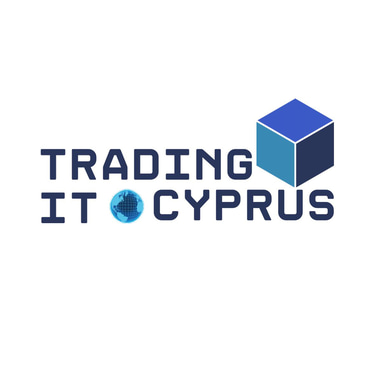EU vs Non-EU Imports into Cyprus: A Comparison for IT Traders
IT TRADING
11/13/20256 min read


EU vs Non-EU Imports into Cyprus
Understanding the difference between EU vs Non-EU Imports into Cyprus is crucial for IT traders who want to run a smooth and profitable business. Since Cyprus is a member of the European Union, it is governed by certain trade laws and standards of imports which may differ in relation to the origin of goods. Everything impacts on IT traders such as the prices and taxes, as well as customs and delivery time. I understand the operation of both systems and therefore the suitability of both systems by traders assists them to save money, plan better, and contribute to compliance. This paper decomposed the major distinctions, advantages and issues of importation of IT products between EU and Non-EU countries to Cyprus in a friendly, easy, and informative address.
Why Understanding EU vs Non-EU Imports into Cyprus Matters
Cyprus is a state that is strategic in linking Africa, Asia and Europe. It is a technological, electronic and digital product trade bridge. To anyone Trading IT Goods, the source of imports EU or Non-EU is what determines the ease of transporting goods across the borders. EU imports receive less customs paperwork, whereas Non-EU imports need additional paperwork and payment of duties. By understanding EU vs Non-EU Imports into Cyprus, IT traders can make smarter decisions, improve logistics, and keep costs under control.
EU Imports: The more Convenient Trade.
In the case of IT products imported in other countries which are EU members, the process is easy. No custom duty and other border taxes are present because the country belongs to the European Single Market. Laptops, routers or computer parts can be imported to Germany, France or Italy without the need of additional charges. This makes EU vs Non-EU Imports into Cyprus heavily favor EU sourcing for convenience and cost savings. VAT is also applicable but it is done in a relatively simple manner. The goods are automatically compliant with EU safety and quality standards, and thus save time and do not require any additional inspections.
Advantages of EU Imports to IT Traders.
There are numerous advantages associated with imports within the EU. First, traders will save on the payments of customs and tariffs. Second, delivery time is reduced, as the products can travel with the countries that are member states. Third, buyers have improved legal coverage as every product is in the stipulation of EU laws and guarantees. To the IT traders, then there will be reduced risks to deal with, cheaper shipping and quicker turnover. In the EU vs Non-EU Imports into Cyprus comparison, EU imports often win in terms of simplicity and reliability.
Non-EU Imports: Greater Selectivity at the Cost of Increased Paperwork.
Non-EU imports are also goods of other countries without the European Union as seen in China, the USA or Japan. The markets are competitive with a broader variety of products. However, EU vs Non-EU Imports into Cyprus becomes complex here because Non-EU goods face customs checks, import duties, and additional paperwork. There is a need to make customs declarations, and also present invoices, shipping documents, and product certificates that the traders are required to file. Import process is more time consuming yet it might be valuable in case his supplier has better prices or the exclusive technology.
Taxes and non-EU Imports Duties and Taxes.
In the case of Non-EU imports, the custom duties will be based on the product type and origin. Currently low or medium duty rates apply to IT products like computers or internet gadgets but traders are required to make them part of the overall expenses. The point of VAT is by the means of importation. In the EU vs Non-EU Imports into Cyprus discussion, this is a major difference since EU imports don’t require customs duties. It is also important that traders that import goods of Non-EU countries are aware of the methods of classification and valuation to be followed in calculating the right taxes.
Custodial Procedures What IT Traders need to know.
The customs process for EU vs Non-EU Imports into Cyprus differs mainly in documentation. The imports within EU travel freely and have standard invoicing and transport details. Imports that are not of EU have to pass through the custom clearance at specified ports or airports. Goods can not be released without the importer paying duties and presenting a Single Administrative Document (SAD). Having a customs broker would make it faster and avoid errors. On massive IT deliveries, precision in documentation prevents the expensive inconvenience.
Quality Standard and Certifications.
Another key aspect of EU vs Non-EU Imports into Cyprus is compliance with technical standards. EU products are already CE certified with environmental regulations in place. Goods not of EU origin may however require testing or some more labeling to satisfy the EU safety requirements. To IT traders, this would make imported products sellable within Cyprus and entire Europe. Non-compliance will result in recalls or fines of the products. This is why certification of suppliers is also required in Non-EU imports.
Times and Logistics of Delivery.
In the EU vs Non-EU Imports into Cyprus debate, logistics play a big role. Shipments by the EU usually take several days to land in Cyprus due to the effective transport connections in Europe. The non-EU imports may take weeks as they have to travel longer shipping paths, clearance of the customs, and potential use of the inspections. Necessarily, the traders of IT require rapid replenishment of products and therefore prefer the suppliers in EU. Non EU sources, however, might remain the preferable investment option even in cases of the import of large volume with regards to more specific equipment at the expense of a longer delivery period.
Comparison of Costs: Which is the better one?
Cost is a major factor when comparing EU vs Non-EU Imports into Cyprus. EU imports are predictable in terms of costs as well as free of customs charges. The prices of the goods could be lower in the non-EU imports, and they may increase the costs by adding taxes, transportation, and document expenses. The traders have to compute the total landed cost, which will consist of shipping, duties, and time to get the best choice. In certain cases, it still makes sense to import Non-EU goods assuming that the margins of the product will be high enough.
Trade Relations and the Long-term advantage.
It is easier to trade in stable partnerships. The suppliers within the EU tend to offer quality and have effective customer care. Non-EU suppliers could be innovative and offer low prices. In EU vs Non-EU Imports into Cyprus, both have advantages depending on the trader’s goals. There are mixed strategies, where some companies buy similar IT products within the EU supply chain to get quick results and within Non-EU manufacturers to get a variety of products. The two-way market approach guarantees stability in supply and flexibility.
Future of IT Trade in Cyprus
The landscape of EU vs Non-EU Imports into Cyprus continues to evolve. Due to the increasing digitalization, there is increasing demand of IT hardware, software, and accessories. Cypriot government promotes the digitalization of trade via the customs and VAT systems which are now more efficient. This allows the traders to save time and limit the amount of paperwork. Cyprus being a nation that lies between Europe and Asia, it will continue to influence technology imports within the next few years.


Conclusion
Understanding EU vs Non-EU Imports into Cyprus helps IT traders make informed decisions. The imports of the EU have provided quicker, easier, and safer trade paths. The imports that are not in EU are at the same time more complicated, though allow an access of competitive pricing and an expanded range of products. Correct strategy will be determined by the size of business, need of customers and type of products. With the EU efficiency and Non-EU market innovation, IT traders in Cyprus will be able to maximize growth and reduce costs as well as remain competitive in a fast-changing technology space.
FAQs
How different are the EU and Non-EU imports into Cyprus?
The EU imports are free of customization, whereas Non-EU imports are supposed to be cleared by customs, paid duties, and paperwork.
Is EU or Non-EU traders better in importing IT by the traders?
Both have benefits. EU imports are quicker and easier whereas Non-EU imports tend to be less priced and more diverse. The most optimal option would be based on your business objectives.
Contact
EVERNEED AI LTD
Limassol Office
Victory House, Arch. Makarios III Avenue 205, Limassol, 3030
Nicosia Office
Digenis Ave 81-83 Grivas 1st, 5th Floors, Nicosia, 1090
Hong Kong Office
SUITE C, LEVEL 7
WORLD TRUST TOWER
50 STANLEY STREET
CENTRAL HONG KONG
Connect
info@tradingitcyprus.com
+357 96166570
© 2026. Trading IT Cyprus All rights reserved.
Powered by Skyrocket Marketers Agency
